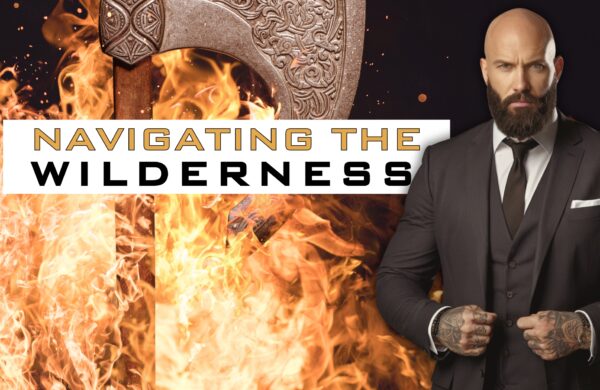Introduction: The Overlooked Power of Friendships in Men’s Mental Health
In the modern world, discussions around mental health have become more prevalent, but the unique struggles men face often remain underrepresented. Societal norms frequently expect men to shoulder their burdens in silence, reinforcing isolation and disconnection. However, one of the most powerful, yet often overlooked, tools for improving men’s mental health is friendship.
Friendships provide emotional support, a sense of belonging, and an outlet for vulnerability that professional therapy or self-care practices alone may not fulfill. This article explores how meaningful friendships can bolster men’s mental well-being, examines the barriers preventing many men from forming these connections, and offers actionable advice for cultivating relationships that enhance mental health.
The Link Between Friendships and Mental Health
The Science Behind Social Connections
Strong friendships have profound effects on mental health. Research has consistently shown that people with close social ties experience lower levels of stress, anxiety, and depression. For men, these relationships can counteract the pressures of societal expectations, providing a safe space to share emotions and challenges.
When men feel supported by friends, their brains release oxytocin, a hormone associated with bonding and stress relief. This chemical reaction not only improves mood but also promotes resilience against mental health struggles like loneliness and low self-esteem.
Emotional Resilience Through Friendship
Life’s challenges, from career setbacks to personal losses, can feel overwhelming without a support system. Friendships help men develop emotional resilience by offering different perspectives, solutions, and, most importantly, a listening ear. Knowing someone has your back fosters confidence and reduces feelings of helplessness.
Barriers to Building Friendships and Their Impact on Mental Health
Societal Stigmas About Vulnerability
Society often equates masculinity with stoicism and emotional independence. This cultural narrative discourages men from expressing vulnerability, leading to superficial or transactional relationships rather than meaningful connections.
The Loneliness Epidemic
Recent studies highlight the growing “loneliness epidemic,” which disproportionately affects men. Without friendships to buffer against feelings of isolation, many men struggle silently, which can exacerbate mental health issues like depression or anxiety.
Busy Lifestyles and Prioritization
Balancing work, family, and personal obligations often leaves little time for friendships. Many men deprioritize social connections, viewing them as non-essential, which gradually leads to a lack of meaningful relationships.
How Friendships Improve Men’s Mental Health
Providing Emotional Support
Close friends act as a sounding board, allowing men to express emotions they might suppress elsewhere. Whether it’s venting about a stressful day or discussing deeper concerns, these interactions help process emotions and prevent them from festering into larger mental health issues.
Encouraging Accountability
Friends often serve as motivators, encouraging healthy habits and offering constructive feedback. This accountability can inspire men to seek professional help when needed, adopt better self-care routines, or pursue goals that boost their confidence and well-being.
Offering a Sense of Belonging
Humans are inherently social beings, and the feeling of belonging is a fundamental psychological need. Friendships provide this sense of connection, counteracting feelings of loneliness or alienation that can lead to mental health struggles.
Building Friendships That Enhance Mental Health
Identify Shared Interests
Friendships often start with common ground. Whether it’s joining a sports team, participating in a hobby group, or attending community events, shared activities create a natural foundation for relationships.
Be Genuine and Vulnerable
Authenticity is key to forming meaningful connections. Don’t be afraid to show vulnerability—it’s often the bridge to deeper friendships. Opening up about your struggles or feelings encourages others to do the same, fostering trust and emotional intimacy.
Invest Time and Effort
Like any relationship, friendships require effort. Make a point to regularly check in with your friends, plan activities, or simply spend quality time together. Consistency strengthens bonds and ensures that the friendship remains a priority.
The Role of Friendships in Overcoming Mental Health Challenges
Combatting Loneliness
Loneliness is one of the most significant contributors to poor mental health, and friendships are a powerful antidote. Regular social interactions provide emotional nourishment, reducing feelings of isolation and fostering happiness.
Reducing Stress and Anxiety
Spending time with friends triggers the release of endorphins, which act as natural stress relievers. Whether it’s sharing a laugh or enjoying a shared activity, these moments create mental clarity and calm.
Improving Self-Esteem
Friends often reflect our strengths and positive traits back to us, reinforcing self-worth. This positive reinforcement can help counteract negative self-talk and boost overall confidence.
Overcoming Obstacles to Building Friendships
Challenge Internalized Beliefs
Examine societal narratives that discourage men from forming close connections. Understand that vulnerability is not a weakness but a strength that enhances relationships and mental health.
Prioritize Connection
Reframe friendships as a crucial element of self-care, on par with exercise or eating well. Dedicate time each week to nurturing existing relationships or pursuing new ones.
Leverage Technology
Digital platforms offer opportunities to connect with others, especially for men who struggle with traditional social settings. Apps like Meetup, Bumble BFF, or even gaming communities can be excellent starting points.
Friendships and Professional Mental Health Support
While friendships are invaluable, they are not a replacement for professional mental health care. Friends can provide support and encouragement, but therapists and counselors offer tools and strategies to address deeper issues.
Healthy friendships often complement therapy by providing a real-world outlet for practicing communication skills, emotional regulation, and trust-building exercises learned in professional sessions.
How to Maintain Friendships for Long-Term Mental Health Benefits
Consistency Is Crucial
Frequent interaction is essential for sustaining friendships. A quick text, a monthly catch-up call, or shared activities keep relationships strong over time.
Be Present and Attentive
Show genuine interest in your friends’ lives. Listen actively, celebrate their successes, and offer support during tough times.
Address Conflicts Gracefully
No relationship is without its challenges. Approach conflicts with empathy and a willingness to compromise, focusing on preserving the friendship rather than assigning blame.
Conclusion: Take Action to Improve Your Mental Health Today
Friendships are a cornerstone of mental health, offering emotional support, accountability, and a sense of belonging. While building and maintaining these relationships may require effort, the rewards—a happier, healthier, and more fulfilling life—are well worth it.
Start by reaching out to an old friend, joining a group activity, or simply practicing vulnerability in your interactions. Every small step brings you closer to a network of friendships that will support and enrich your mental well-being.



